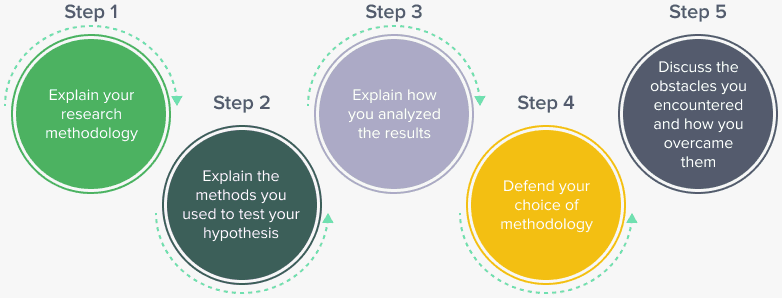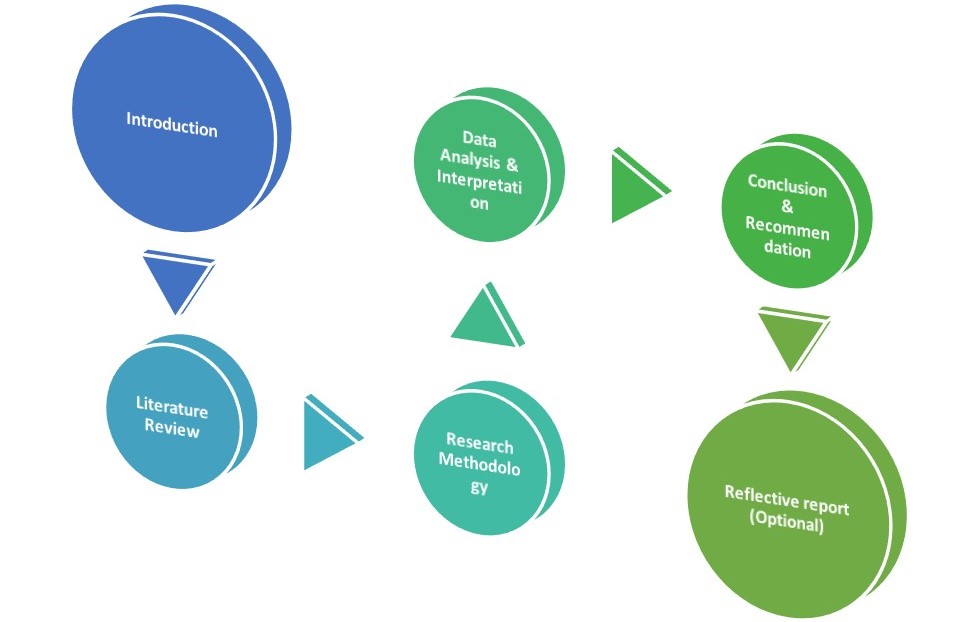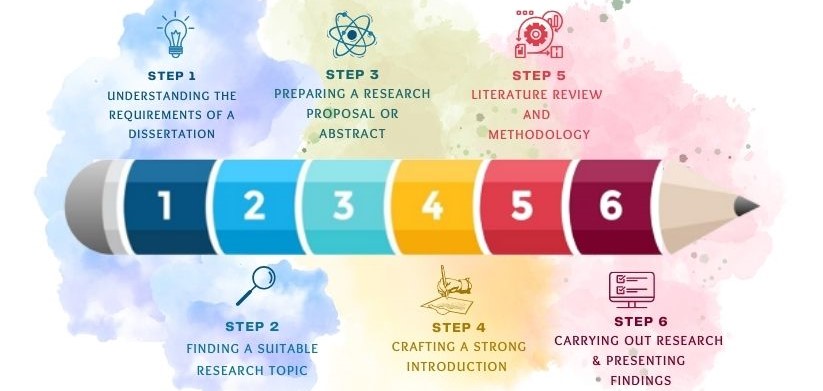
Table of Contents
The nursing dissertation is the culmination of a nurse’s academic journey, a testament to their knowledge, research skills, and commitment to the field. However, this challenging undertaking can feel overwhelming, leaving many nursing students unsure of where to begin. This comprehensive guide will walk you through every step of the nursing dissertation writing process, offering practical advice and insightful strategies to ensure a successful and impactful dissertation.
What is the Essence of Nursing Dissertation Writing?
The essence of nursing dissertation writing lies in its ability to contribute meaningfully to the body of nursing knowledge. It’s not just about completing a lengthy academic requirement; it’s about generating new insights, challenging existing practices, and ultimately improving patient care.
A successful nursing dissertation goes beyond summarizing existing literature. It delves deeper, exploring a specific, well-defined research question that addresses a gap in the field. The process of nursing dissertation writing involves rigorous research, meticulous data analysis, and clear, concise communication of findings. It’s a journey of discovery, one that demands critical thinking, analytical skills, and a deep commitment to the profession.
By engaging in nursing dissertation writing, future nurses contribute to the evolution of their field, pushing boundaries and shaping the future of patient care.
Definitive Steps to Nursing Dissertation Writing
1. Selecting a Nursing Dissertation Topic:
The foundation of a strong nursing dissertation lies in choosing a relevant and feasible research topic. Begin by identifying your area of interest within nursing and exploring current trends and research gaps. Consider the following pointers for choosing the right nursing dissertation topic:
- Personal Experience: Has your clinical practice ignited a passion for a particular area? Are there patient needs you believe require further investigation?
- Literature Review: Analyze recent publications in your chosen field to identify gaps in knowledge or controversial topics that require further exploration.
- Clinical Significance: Ensure your topic contributes meaningfully to the field of nursing, addressing a real-world problem or improving patient care practices.
2. Defining the Research Question and Objectives:
Once you have a clear topic, it’s crucial to formulate a concise and focused research question. The research question should be specific, measurable, achievable, relevant, and time-bound (SMART). It should guide your entire nursing dissertation writing process, providing a clear roadmap for your investigation.
Next, define your research objectives, which are the specific steps you will take to answer your research question. These objectives should be directly related to the research question and should be clearly stated, measurable, and achievable within the scope of your study.
3. Developing the Methodology:
The methodology section is the heart of your nursing dissertation writing. It outlines the research approach, data collection methods, and data analysis techniques used in your study.

- Quantitative vs. Qualitative: Choose the research approach best suited to your research question and objectives. Quantitative research uses numerical data to analyze relationships and trends, while qualitative research focuses on exploring experiences, perspectives, and meanings.
- Data Collection Methods: Choose appropriate methods for gathering data, such as surveys, interviews, focus groups, observations, or document analysis.
- Data Analysis Techniques: Select statistical methods or qualitative analysis approaches for analyzing your data and drawing meaningful conclusions.
4. Conducting the Research:
Once your methodology is established, it’s time to gather your data. Ensure you adhere to ethical research guidelines and obtain necessary permissions for data collection.
- Ethical Considerations: Obtain informed consent from participants and ensure their anonymity and confidentiality are protected.
- Data Collection Procedures: Follow your outlined data collection methods rigorously, maintaining accuracy and consistency throughout the process.
- Data Management: Keep meticulous records of all data collected, including source information, dates, and any relevant details.
5. Writing the Nursing Dissertation:
The writing phase of nursing dissertation writing involves meticulously organizing and presenting your findings. Structure your dissertation into distinct sections:

- Introduction: Briefly introduce the topic, state your research question and objectives, and provide context and significance for your study.
- Literature Review: Summarize and analyze existing research relevant to your topic, highlighting key findings and identifying gaps in knowledge.
- Methodology: Detail your research approach, data collection methods, and analysis techniques, justifying your choices and ensuring reproducibility.
- Results: Present your findings in a clear, objective, and organized manner, using tables, figures, and statistical analyses where appropriate.
- Discussion: Interpret your findings in relation to existing research, discuss limitations of your study, and provide recommendations for future research.
- Conclusion: Summarize your key findings and highlight the significance of your research within the broader nursing context.
6. Proofreading and Editing:
After completing your nursing dissertation writing, ensure it is free of grammatical errors, typos, and inconsistencies. This critical step improves clarity and readability, making your work more impactful and professional.
- Clarity and Conciseness: Use clear and concise language, avoiding jargon or complex terminology.
- Structure and Flow: Ensure logical progression of ideas and a cohesive flow throughout the dissertation.
- Accuracy and Consistency: Double-check for factual accuracy, correct referencing, and consistency in formatting and style.
7. Submission and Defense:
After final proofreading, submit your dissertation to your university or institution. Be prepared to defend your work during a viva voce, a formal oral examination conducted by a panel of experts.
Submission and defense is the last step in nursing dissertation writing, demonstrating a culmination of months, perhaps even years, of dedicated work.
Submission: Meeting the Requirements
- Adhere to Formatting Guidelines: Follow your university’s guidelines meticulously to avoid unnecessary delays.
- Proofread and Edit Thoroughly: Multiple rounds of proofreading and editing are essential for catching any errors in grammar, spelling, and clarity.
- Seek Feedback from Mentors: Consult with your dissertation advisor and other trusted faculty members for valuable insights.
Defense: Conveying Your Expertise
- Know Your Dissertation Inside Out: Be prepared to answer in-depth questions about your nursing dissertation writing, methodology, findings, and implications.
- Practice Your Presentation: Rehearse your defense multiple times to ensure a confident and clear delivery.
- Engage with the Committee: Be prepared to address their questions and defend your research choices.
- Stay Calm and Professional: Even if you encounter challenging questions, maintain composure and focus on presenting your work effectively.
Remember, your nursing dissertation writing is a significant milestone in your academic journey. By dedicating yourself to the process, you can confidently submit and defend your work with pride and contribute to the advancement of nursing knowledge.
Prepare for the Viva: Re-familiarize yourself with your research, anticipate potential questions, and practice your defense with a mock interview.
Confidence and Professionalism: Project confidence and professionalism during the viva, clearly articulate your research findings, and address questions effectively.
Tips for Effective Nursing Dissertation Writing
- Start Early: Begin your nursing dissertation writing process well in advance to avoid feeling overwhelmed.
- Seek Guidance: Consult with your supervisor regularly and engage in peer review sessions for feedback and support.
- Break It Down: Divide your dissertation into manageable tasks and set realistic deadlines to maintain progress.
- Prioritize Self-Care: Maintain a healthy work-life balance to avoid burnout and ensure sustained productivity.
Common Nursing Dissertation Writing Mistakes and How to Avoid Them
Writing a nursing dissertation can be a daunting task. It requires extensive research, critical thinking, and effective communication skills. However, many students make common mistakes that can hinder their success. Here are some of the most frequent errors and how to avoid them:
1. Lack of Focus and Clear Research Question:
A nursing dissertation should address a specific, focused question within your chosen field. A poorly defined research question can lead to a disorganized dissertation with no clear direction.
Solution: Start by identifying a relevant and feasible research area. Then, formulate a well-defined research question that guides your entire nursing dissertation writing process.
2. Inadequate Literature Review:
A comprehensive literature review is crucial for any nursing dissertation writing. It provides a foundation for your research and highlights gaps in existing knowledge.
Solution: Conduct thorough research using reputable sources. Analyze and synthesize findings from various studies to create a well-structured and informative literature review.
3. Weak Research Methodology:
The methodology section of your nursing dissertation outlines your research design and data collection methods. A weak methodology can compromise the validity and reliability of your findings.
Solution: Choose appropriate research methods and clearly describe your sampling strategy, data collection tools, and analysis techniques. Provide detailed justifications for each step to demonstrate the rigor of your nursing dissertation writing.
4. Poor Data Analysis and Interpretation:
Analyzing and interpreting your findings accurately is crucial for drawing meaningful conclusions.

Solution: Use appropriate statistical techniques to analyze your data. Interpret your results within the context of your research question and existing literature. Avoid overgeneralizing or making claims that are not supported by your findings.
5. Insufficient Discussion and Conclusion:
The discussion and conclusion sections should synthesize your research findings, discuss their implications, and address any limitations.
Solution: Connect your findings back to your research question and existing literature. Clearly state your conclusions and discuss their significance for nursing practice, research, and future research directions.
6. Lack of Clarity and Structure:
A poorly structured nursing dissertation can confuse your readers and make it difficult to follow your argument.
Solution: Use a logical structure, clear headings and subheadings, and transition words to guide your readers through your dissertation. Ensure that your writing is concise, precise, and free from grammatical errors.
By avoiding these common mistakes, you can increase your chances of success in nursing dissertation writing. Remember to seek guidance from your advisor, peers, and other resources throughout the process. With careful planning, thorough research, and effective communication, you can write a high-quality nursing dissertation that makes a meaningful contribution to your field.
Trending Nursing Dissertation Topics
Here are compelling topics that could be excellent starting points for your nursing dissertation writing:
- The Impact of Artificial Intelligence on Nursing Practice: Explore how AI technologies like robotic surgery, telehealth platforms, and predictive analytics are transforming the nursing profession. This nursing dissertation writing could examine the benefits, challenges, and ethical implications of these technologies.
- Improving Patient Outcomes through Mindfulness-Based Interventions: Investigate the efficacy of mindfulness-based interventions (e.g., meditation, yoga) in reducing stress, anxiety, and pain in patients. This nursing dissertation writing could explore the impact on patient satisfaction, medication adherence, and overall well-being.
- The Role of the Nurse in Promoting Health Equity: Examine how nurses can address health disparities and improve access to healthcare for marginalized populations. This nursing dissertation writing could explore strategies for culturally competent care, community outreach, and advocacy for policy changes.
- The Impact of Climate Change on Nursing Practice: Explore the challenges and opportunities for nurses in responding to the health consequences of climate change (e.g., heat waves, extreme weather events). This nursing dissertation writing could investigate how nurses can adapt their practice, advocate for environmental justice, and educate communities about climate change-related health risks.
- The Use of Virtual Reality in Nursing Education: Investigate the effectiveness of VR simulations in training nursing students for real-world scenarios. This nursing dissertation writing could explore the impact on clinical skills, decision-making, and emotional intelligence.
- The Lived Experiences of Nurses During the COVID-19 Pandemic: Explore the physical, emotional, and psychological impact of the COVID-19 pandemic on nurses. This nursing dissertation writing could uncover themes of stress, burnout, resilience, and coping mechanisms.
- The Role of the Nurse in End-of-Life Care: Examine the evolving role of nurses in providing compassionate and holistic care for patients facing terminal illnesses. This nursing dissertation writing could explore the ethical considerations, cultural sensitivity, and communication strategies involved in end-of-life care.
Remember to select a topic that aligns with your interests and research capabilities. Thorough research and a well-defined research question are crucial for successful nursing dissertation writing.

Navigating the challenging world of nursing dissertation writing requires a comprehensive understanding of the process, strong research skills, and unwavering determination. This guide serves as a valuable roadmap, providing practical advice and insights to equip you with the tools and confidence to create a compelling and impactful dissertation that contributes meaningfully to the field of nursing. Remember, this journey is a testament to your dedication and commitment to making a difference in the lives of others.
Get Professional Nursing Dissertation Writing Assistance
Nursing dissertation writing is a rigorous exercise that requires outstanding skills, time and commitment. Instead of struggling with all the work on your own, engage the experts at Nursing Papers for the ultimate dissertation writing solutions. We offer professional assistance for nursing dissertations, essays, research papers and case studies.







